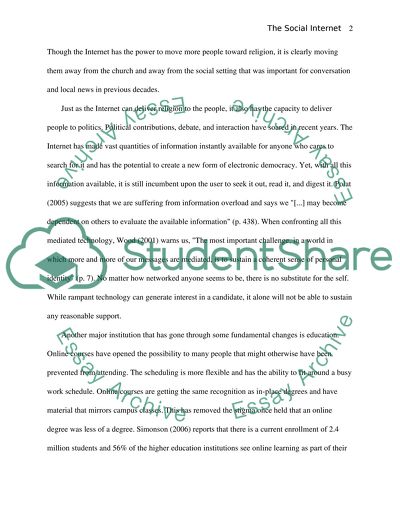Cite this document
(“The Social Internet Essay Example | Topics and Well Written Essays - 1750 words”, n.d.)
Retrieved from https://studentshare.org/social-science/1509427-the-social-internet
Retrieved from https://studentshare.org/social-science/1509427-the-social-internet
(The Social Internet Essay Example | Topics and Well Written Essays - 1750 Words)
https://studentshare.org/social-science/1509427-the-social-internet.
https://studentshare.org/social-science/1509427-the-social-internet.
“The Social Internet Essay Example | Topics and Well Written Essays - 1750 Words”, n.d. https://studentshare.org/social-science/1509427-the-social-internet.


